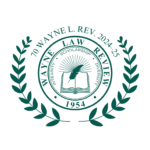Family Law
Family law, unlike so many areas of the law, is primarily driven by facts, turning on human behavior, equity, and the societal view of familial norms. The rule of law in family law becomes particularly important as each client, practitioner, and judge brings his own judgments about the progression of those norms, his own interpretation of rightness within our current society, and his own understanding of how society should adapt to an ever changing social culture. Read More …
